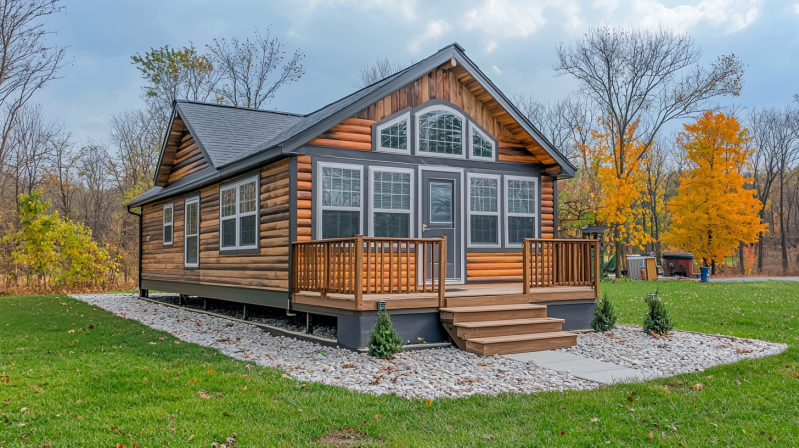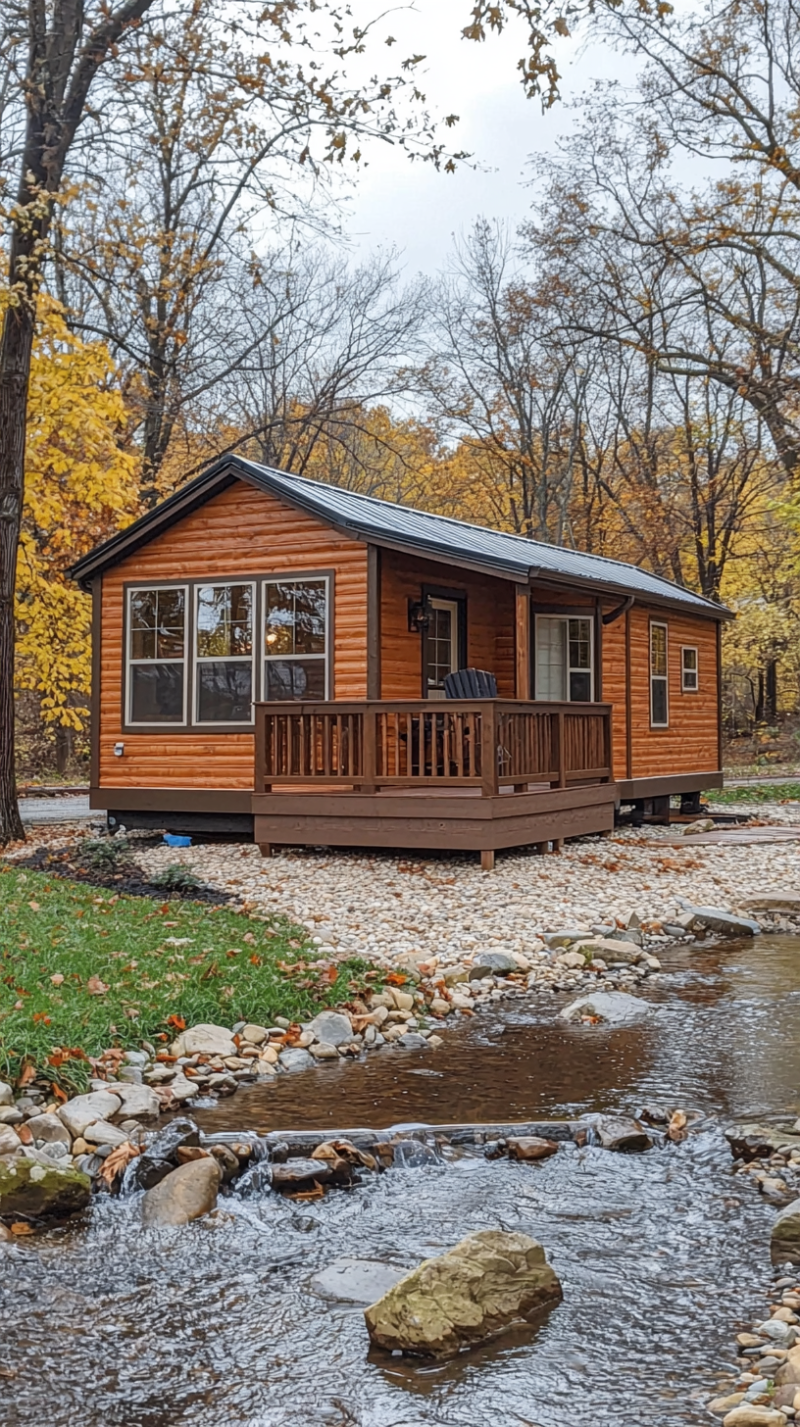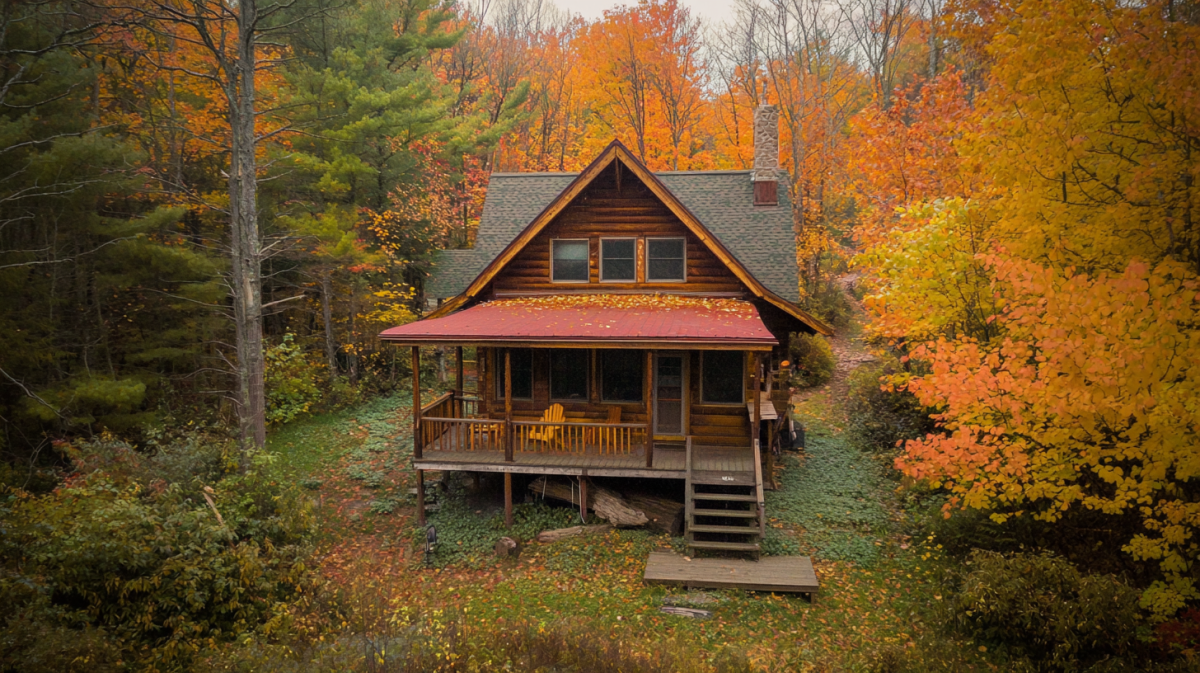So, you're contemplating investing in a hunting cabin. The question you're grappling with is whether to buy an already-constructed cabin or build your own. Both options have their merits and drawbacks, but there is actually a third option too - pre-built homes that can be assembled on-site. Buying a cabin that already exists is clearly the quickest and easiest solution, however building or even assembling one allows for personalization. Ultiamtely, it's not just about convenience or preference - there's a lot more to consider such as costs, legalities, and maintenance. So, is it better to go for the instant gratification of a ready-made cabin, or should you invest the time and effort into creating your own hunting retreat? Let's take a look.
What's Your Next Home Improvement Project?
- Assessing whether to buy or build a hunting cabin depends on your needs, budget, and customization desires.
- Buying a hunting cabin provides standard quality and avoids construction delays, though it may be more costly.
- Building your own cabin allows for personalization but involves planning, permits, and could have higher initial expenses.
- Both options require consideration of ongoing costs and local regulation compliance.
- Think about future maintenance and potential land value appreciation, as leasing could miss out on these benefits.
Looking At Different Prefab Cabin Options
This discussion can be pretty complex when looking at all the different options. Buying a property that already has an existing cabin is easy but if you are buying land to build on, things cab get more complicated.
I know a lot of guys who simply dropped a mobile home on their piece of land and it works well for them during hunting season, but frankly, there are more and better options these days.
While you can still get a trailer or even an old RV and park it on your property, we're fans of prefab options such as park model homes and manufactured homes. Personally, I would choose a park model home for folks looking for something small, easy to install, and very affordable. However, a manufactured home offers a great option for families looking for a more permanent solution, too.
Construction Standards
Park model homes are built to recreational vehicle (RV) standards and are designed to provide a compact, semi-permanent living space for recreational or seasonal use. In contrast, manufactured homes are constructed according to the U.S. Department of Housing and Urban Development (HUD) code, which ensures they meet specific safety, durability, and energy efficiency standards suitable for full-time residential living. Mobile homes aka "trailer homes", built before 1976, often lack these modern safety and quality benchmarks due to fewer regulations at the time of their construction.
Note: this isn't to say that park model homes aren't built well - but because they are designed to be mobile vs permanently attached to the ground, there are certain compromises that have to be made. This is why we encourage you to do your research and meet with various prefab builders to examine their construction quality. For instance, little things like the kitchen cabinets being made of real wood, plywood, or particle board can make a big difference in the long-term value of your property in terms of how it holds up after years of seasonal weather and use.
Size and Use
Park model homes are typically limited to around 400-500 square feet, making them ideal for vacation homes or seasonal use. The simple reason for this is that they are categorizes essentially as "oversized RVs" and are designed to be transported on wheels. On the other hand, manufactured homes come in a range of sizes, from single-wide to multi-section units, allowing for greater flexibility and customization for full-time living. These manufactured homes are designed to be placed on a permanent foundation with the same water, sewer and utility hookups that a custom-built home would have.
Similarly, while park model homes are great for short-term living—such as rentals, hunting cabins, and for family to stay in while visiting—they also tend to lack the same levels of insulation that a manufactured home would have. That isn't terribly important for most folks since you can always get a space heater in the winter but it's something to consider if you are potentially going to use this cabin as a retirement destination at some point in the future.
Mobile homes, especially those built before 1976, are generally smaller and may not offer the modern amenities or space required for comfortable, long-term living.
Regulations and Zoning
Park model homes are typically classified as RVs. These may face restrictions regarding where they can be placed and are often limited to campgrounds or specific communities designed for seasonal living. On the other hand, manufactured homes must comply with HUD regulations but are also subject to local zoning laws, which can impact their placement in residential areas. Mobile homes, particularly pre-1976 models, may face even stricter regulations and more significant challenges in securing placement and financing due to their older construction standards and perceived risks.
These distinctions highlight the importance of understanding each option's regulatory landscape before deciding which type of home best fits your needs.
Financing And Insurance
Finally, Financing and insuring park model homes, manufactured homes, and mobile homes can be complex, with each type presenting unique challenges.
Park model homes, are pretty easy to get - the same as buying an RV and insurance is similar (though coverage would be adjusted since the park model home is mostly static while a typical RV is mobile and subject to road hazards etc).
Manufactured homes on the other hand, are financed similar to any other traditional mortgages and government-backed loans if placed on a permanent foundation. Likewise, they can be insured with policies similar to standard homeowners’ insurance, though rates may vary depending on the specific property.
Navigating these differences can be complicated, so we’ll explore the details in another article.

Pros and Cons of Purchasing A Cabin vs Building
Let's take a look at the pros and cons of purchasing a cabin vs buying one that is already built and ready to move in. This isn't entirely a fair comparison because when you purchase a cabin to be used for your weekend retreat or as a hunting cabin, you are also buying the land and sometimes these properties come pre-furnished also so it is ready to move in as well as potentially ready to rent out when you aren't there. On the other hand, when you consider building - custom or pre-built, you need to also find the suitable piece of land for it as well as all the other associated permits.
Comparison Chart:
This chart compares the pros and cons of the three different options that most men consider when looking to acquire a property to use as their hunting cabin. As is the case in all situations like this, costs can vary tremendously. For instance, there are hunting cabins for sale near Jackson Hole, WY that are upwards of $5 million dollars but you can find a cabin on nearly 300 acres of land in Michigan's Upper Peninsula for under $500,000 and if you want to go smaller, there are properties with 100 acres for less than half that price. Likewise, you can find 60 acres of vacant land up there just waiting to build a cabin for under $100,000.
The sky is really your limit but here's what you can expect in terms of the differences for the home itself when comparing a cabin that is already existing vs building a custom cabin or a pre-built park model home type property.
| Criteria | Buying a Hunting Cabin | Building a Custom Cabin | Pre-Built Park Model Home |
|---|---|---|---|
| Initial Cost | Typically lower upfront cost; existing structure, but may require renovations or upgrades. | Costs can be controlled based on design choices but generally involve high upfront costs, especially for unique designs. | Generally more affordable than custom builds, but there may be additional fees for delivery and setup. |
| Convenience | Ready to use immediately, but limited to existing features. | Tailored to personal preferences, but the process can be time-consuming. | Quick setup and ready to use soon after delivery, though some setup time is still needed. |
| Customization | Limited customization options; significant changes can be costly. | Fully customizable to suit personal needs, but the process can be lengthy and involve unforeseen challenges. | Some customization options are available but limited to those offered by the manufacturer. |
| Maintenance | May come with existing maintenance history, but there could be hidden repair costs, especially for older cabins. | Lower initial maintenance needs due to new construction, but costs may increase as the property settles. | Low maintenance due to new construction but may require specific parts and services. |
| Resale Value | Potential for appreciation in established markets, but value may vary greatly depending on condition and market demand. | High potential resale value, but heavily dependent on location, market conditions, and build quality. | Can appreciate in high-demand areas, but the resale market might be niche or limited. |
Which one is the best option? That really depends on you and your priorities. For some - the idea that they can make a purchase right now and have it ready for hunting season next month is enormously appealing. On the other hand, as a guy who is looking to buy a cabin but not in a rush ... the idea of being able to find the perfect piece of land first, and then get a smaller, pre-built property such as a park model home that can be delivered to my new property and installed quickly without having to worry about finding a contractor is pretty darn appealing!

Park Model Homes Are A Great "New" Option
Since the 2019 pandemic, people have been looking for ways to get out of the cities (and suburban areas) and get back to nature. For many, the choice was an RV, and for others, it was a cabin in the woods somewhere. This has led to a boom in manufactured homes in general and park model homes specifically.
While this type of property has been around since the 1980s, only in recent years has it been a viable option for people who genuinely wanted a quality product and were willing to pay for it.
The line between a trailer home and a park model home is pretty thin, but it all comes down to quality and purpose.
For instance, while a trailer home is often designed as an incredibly cheap housing option for lower-income people (and sometimes simply as a cheap vacation property in trailer parks), park model homes are designed for people seeking an easy, affordable, quality option for weekend getaways. This also makes it the perfect option for guys looking for a hunting cabin!
